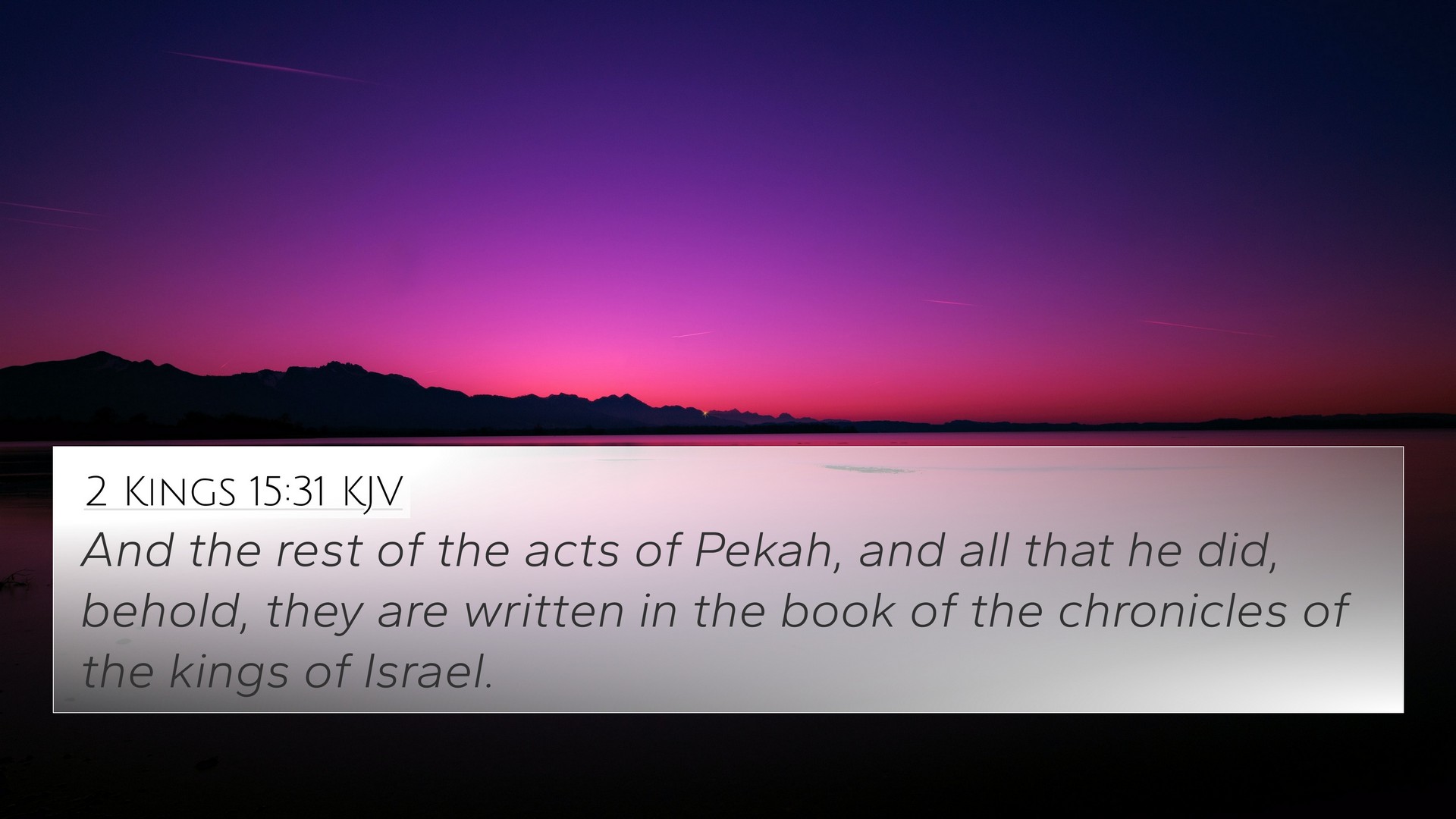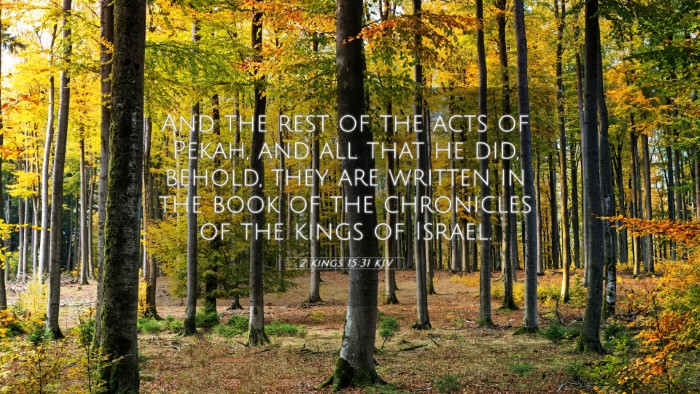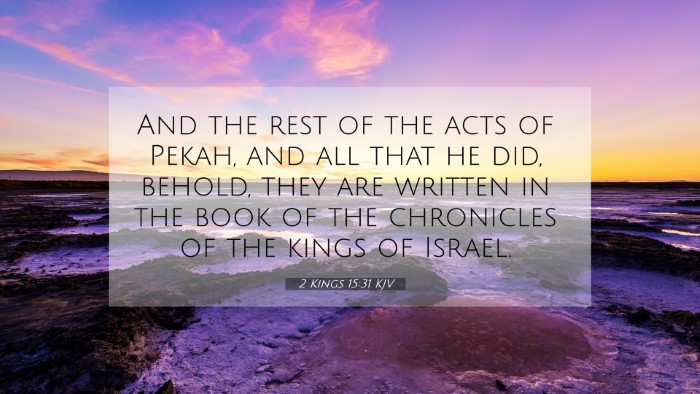Understanding 2 Kings 15:31
In examining 2 Kings 15:31, we find a terse yet poignant account reflecting a significant moment in the history of Israel during the reign of King Jotham.
Verse Context
This verse reads: "And the rest of the acts of Pekahiah, and all that he did, are they not written in the book of the chronicles of the kings of Israel?" This verse serves as a transition point in the narrative of Israel's kings, especially focusing on Pekahiah’s brief and turbulent reign.
Commentary Insights
Matthew Henry's Commentary
Matthew Henry emphasizes the brevity of Pekahiah's reign, noting that it did not lead Israel closer to God. His lack of significant accomplishments and the prevailing idolatry of the times highlight a spiritual decline.
Albert Barnes' Notes
Albert Barnes points out that the references to the "book of the chronicles" suggest there were official records detailing the actions of the kings, which included their moral and spiritual failings. Pekahiah's rule is indicative of the instability and moral corruption within the nation.
Adam Clarke's Commentary
Adam Clarke considers the mention of records implying both accountability and the continued prophetic call to repentance that often marked the period of the kings. He notes that the repetition of similar phrases in these accounts emphasizes the futility of the kings who did not seek the Lord.
Thematic Connections
The verse highlights significant themes such as:
- Accountability of leadership
- The documentation of moral governance
- The consequences of idolatry and disobedience
- Linkages between prophetic literature and historical accounts
Cross-References
This verse connects to several other scripture passages that illuminate its meaning:
- 2 Kings 14:23-29 - Details the reign of Jeroboam II and Israel's relative success contrasted with Pekahiah's failure.
- 2 Kings 15:25 - Discusses Pekah's uprising against Pekahiah, showcasing the instability in Israel.
- Isaiah 7:1-2 - Provides context for the geopolitical situation during the reigns of these kings.
- Hosea 1:1 - Connects the prophetic call to repentance during Pekahiah's reign.
- 2 Chronicles 26:1-3 - Discusses the overarching governance in Judea as a comparison to Israel’s failures.
- Micah 3:1-12 - Addresses the issues of leadership and corruption in Israel.
- Jeremiah 3:8 - Speaks on the unfaithfulness of Israel and the consequences of its leaders.
Conclusion
To sum up, 2 Kings 15:31 serves as an important marker in the narrative of Israel's kings, reminding readers of the necessity for righteous leadership and the consequences of turning away from God. It invites deeper engagement with scripture through Bible verse cross-references, encouraging a comprehensive Bible cross-reference guide for those looking to delve into the complexities of Biblical texts. This effort to understand interconnected scriptural narratives enhances our perception of spiritual themes and their relevance throughout the Bible.
Further Study
For those interested in a detailed study, it is beneficial to utilize cross-referencing Bible study methods and tools such as a Bible concordance or Bible reference resources. This can provide clarity in identifying connections between Old and New Testament writings, and the overarching themes evidenced across the scriptures.


